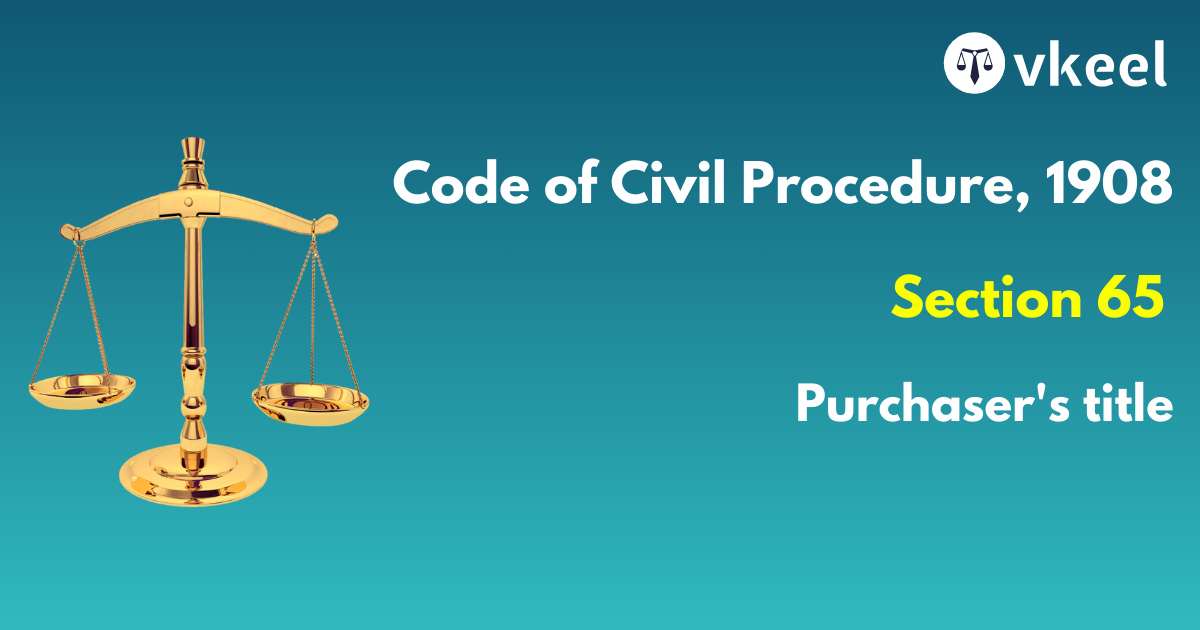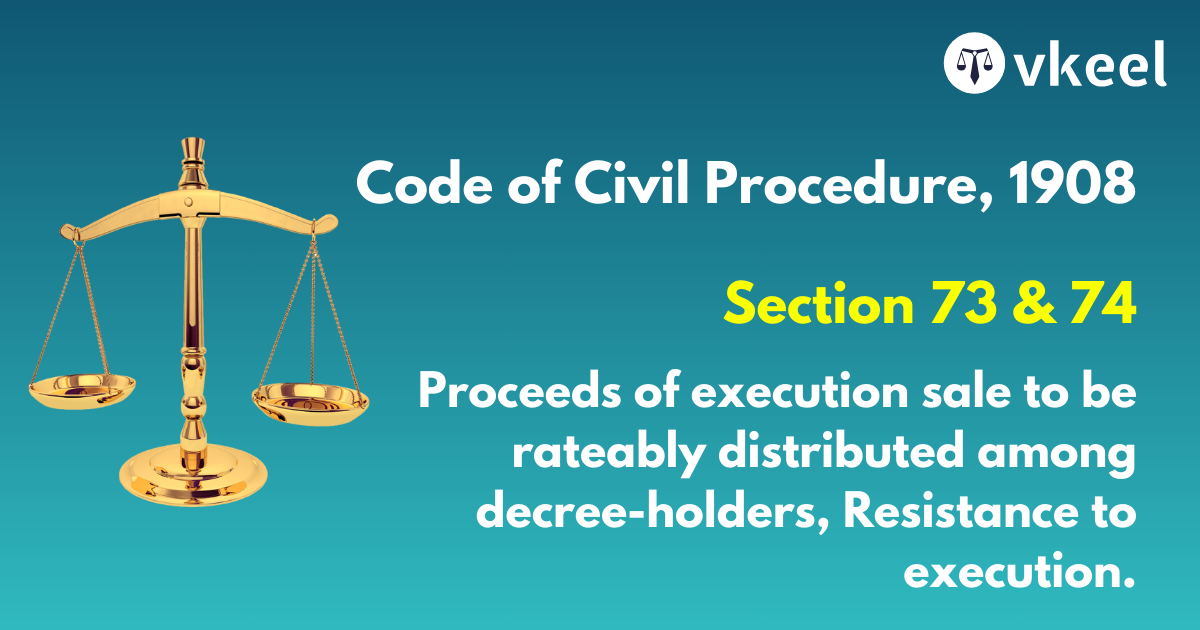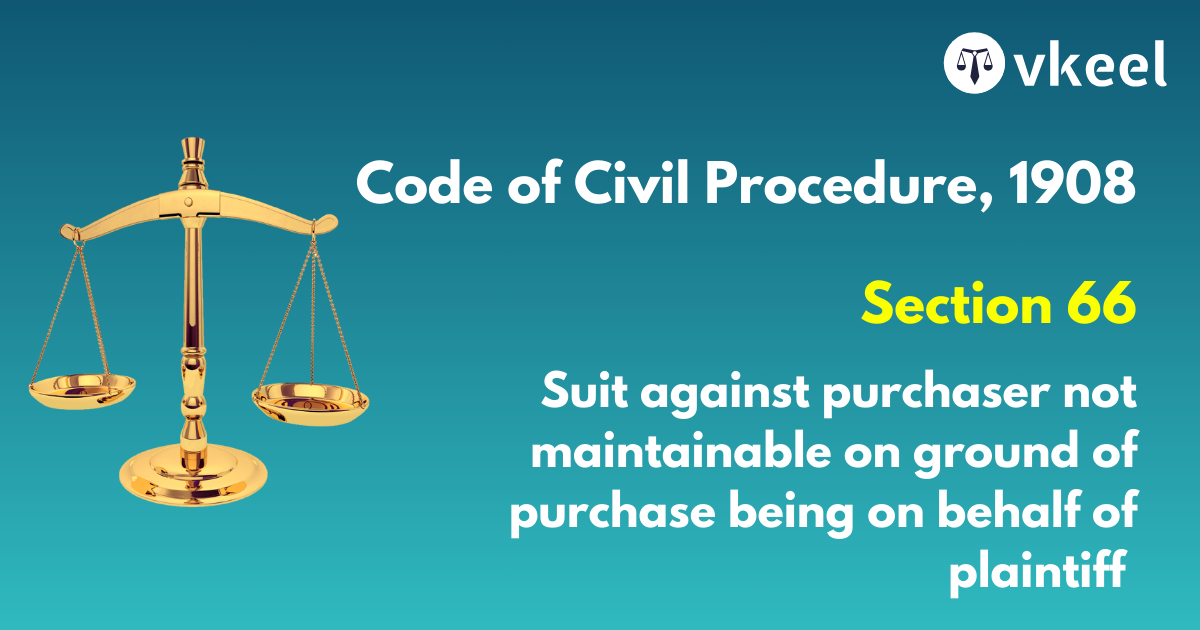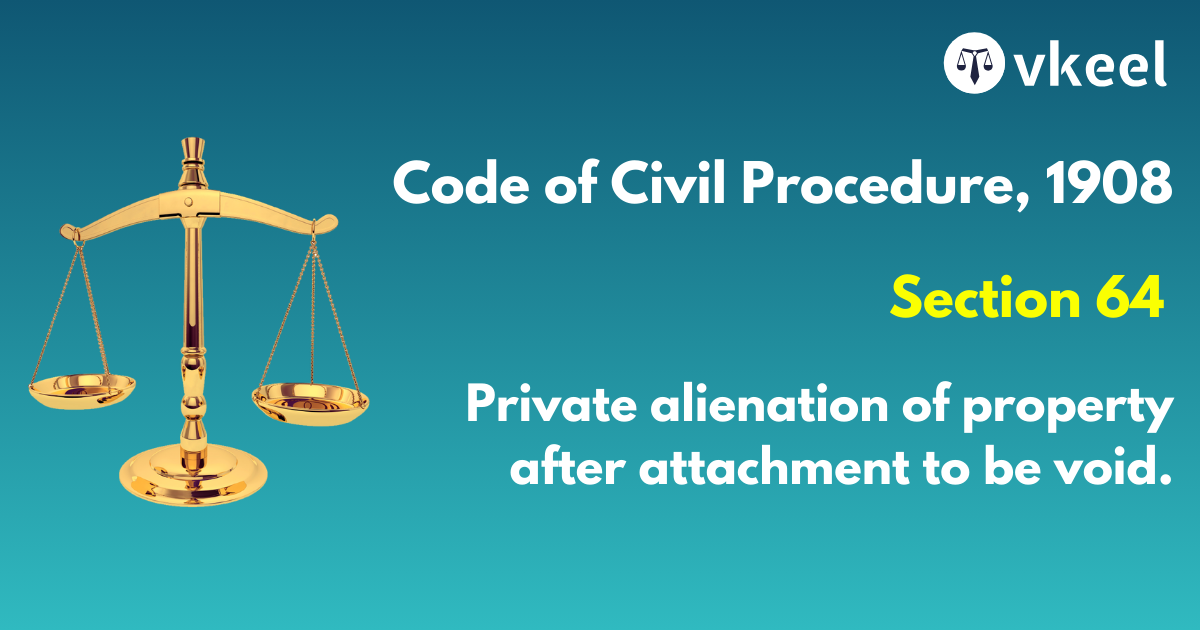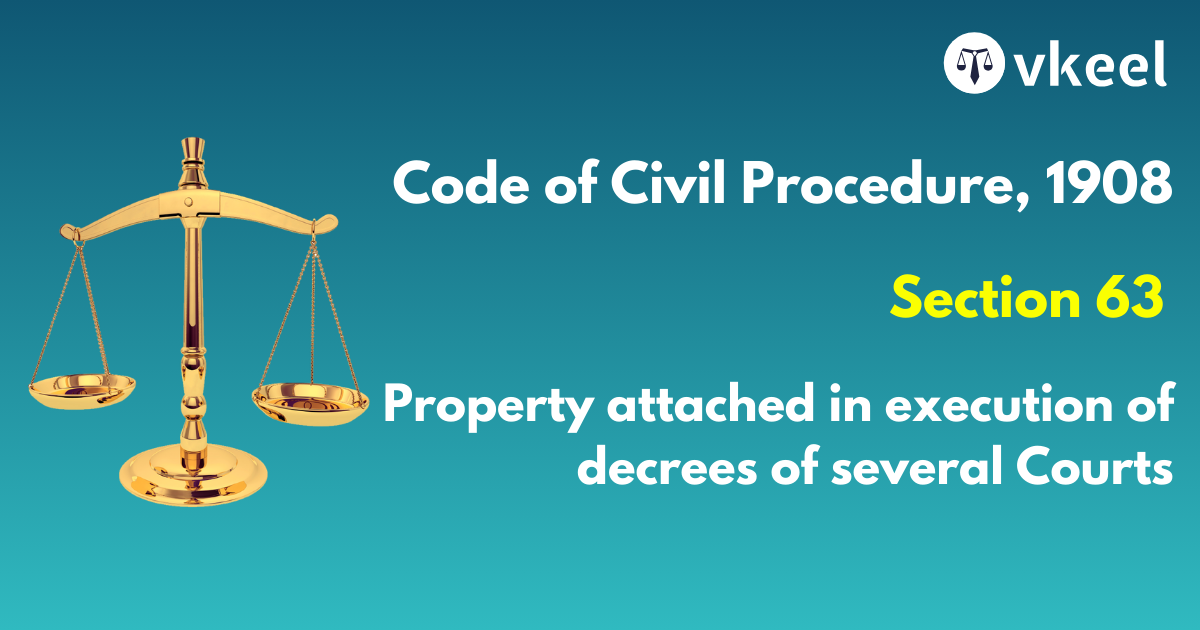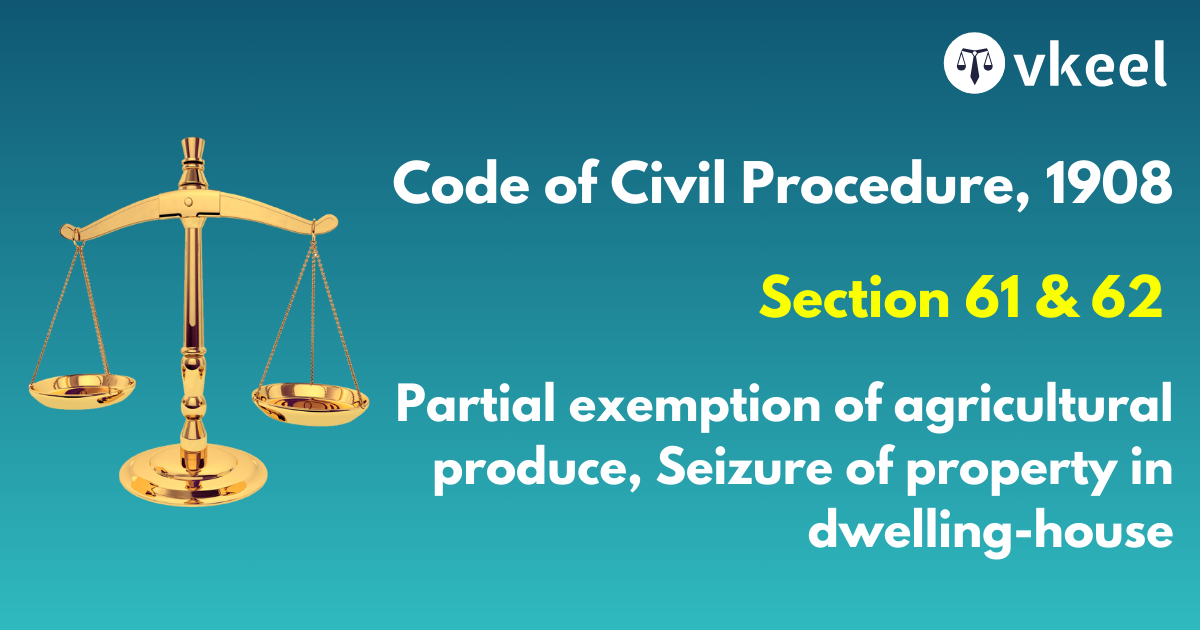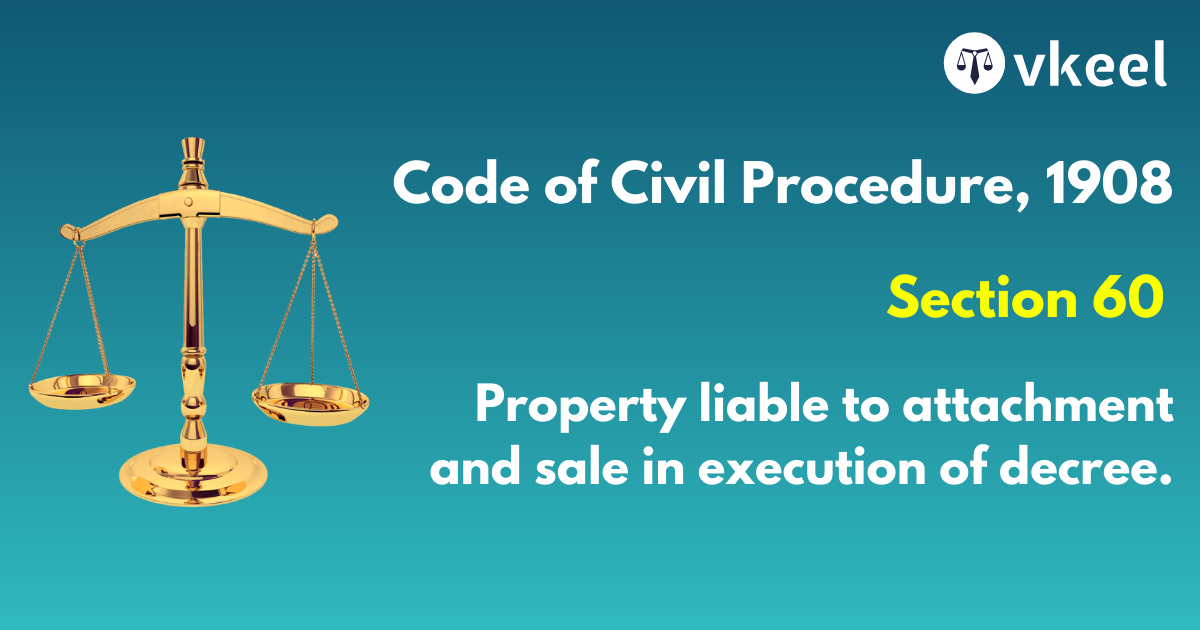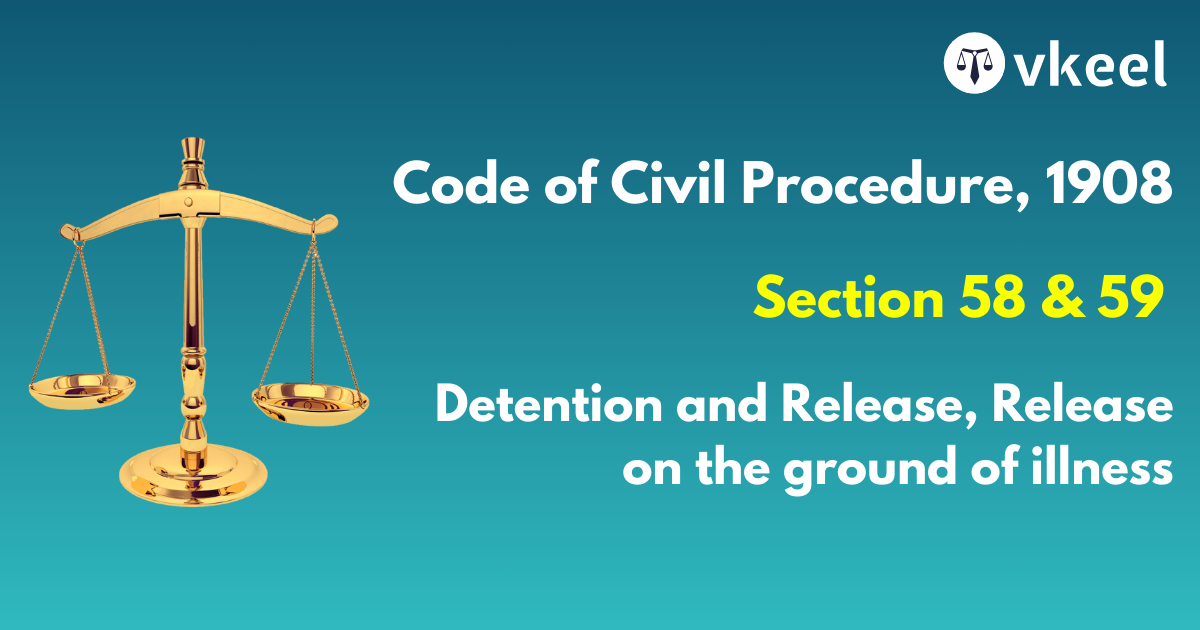Section 65 of the Code of Civil Procedure, 1908
By Joy Puri
Introduction
The Section 65 of the Code of Civil Procedure stipulates that when immovable property is sold in execution of a decree, the purchaser becomes the legal owner of the property once the sale is confirmed by the court, and the purchaser receives the certificate of sale.
Therefore, Section 65 of the Code of Civil Procedure (CPC) addresses the concept of title to immovable property after a sale in execution of a decree.
Section 65 of the Code of Civil Procedure
Purchaser’s title.
Where immovable property is sold in execution of a decree and such sale has become absolute, the property shall be deemed to have vested in the purchaser from the time when the property is sold and not from the time when the sale becomes absolute.
Landmark Case Laws
Bhawani Vs Bathura, 40 C 89 PC
No title vests in the purchaser so long as a judicial sale is not made absolute. Under the section in 1882 Code the title vested from the date of the sale certificate; but under the present section the title vests from the time of the sale, i.e., although no title vests until confirmation of sale, when the title vests it relates back to the date of the sale
Bishan Pal Vs Mothu Ram, A 1965
Title passes to the auction purchaser on confirmation of sale as issuance of sale certificate is merely an administrative act.
Janak Vs Gurdial, A 1967 SC 608
The title of the purchaser relates back to the date of sale and not to that of its confirmation and sale must be confirmed even if the decree is reversed between the date of sale and the confirmation.
Jagdish Vs CIT,1986
When the sale certificate itself operates as effecting the transfer of the property, no question arises of relating the transfer back to the date of auction in view of section 65,
VT Veerappa Vs PS Palaniappa,1973
Another decree-holder attaching sale property subsequent to sale and even before confirmation cannot enforce his decree, nor can he claim any benefit under section 63.
H Bhavar Lal Vs Vasudeva,1983
Subsequent sale in execution of another decree does not affect title of a purchaser in a previous, execution sale and subsisting attachment before judgment in another suit does not also affect purchaser’s title .
Jamuna Vs Mangal, 1946
A sale of property by judgment-debtor between the dates of execution sale and its confirmation does not affect the title of the auction-purchaser
Bhagavadas Vs Soma Iyer, A 1969 K 263
The purchaser is entitled to profits of property from date of sale.
Dorab Vs Executors 3 C 806, 813 PC
There is no implied warranty of title in a court-sale and the maxim caveat emptor applies. What passes to the purchaser is only the right, title and interest of the judgment-debtor with all risks and defects of title
Kota Vs Pathivada, A 1973 AP 94
The purchaser is entitled to the value of crop raised after date of sale.
Deepali Biswas Vs Nirmalendu Mukherjee, Civil Appeal No. 4557 of 2012 (SC)
A conjoint reading of section 65 of the Code, O XXI rules 92 and 94 would show that [the sale of a property in execution of a decree] passes through three stages (apart from certain intervening stages)- (i) conduct of sale; (ii) sale becoming absolute; and (iii) issue of sale certificate. After all these three stages are crossed, the 4th stage of delivery of possession comes under rule 95 of O XXI. It is at this 4th stage that the appellants have raised the objection relating to O XXI, rule 64
Nidhpal Vs Union, A 1966 A 360 FB
As a result of the sale the auction-purchaser acquires a substantial right in the property although he gets no title till confirmation.
Moti Vs Usman,1949
When a sale in favour of A was set aside and thereafter there was another sale in favour of B, but subsequently the sale in favour of A was restored in appeal, the position is as if the sale in A’s favour had never been set aside.
Chimanlal Vs Amratlal,1974
Till the sale becomes absolute, judgment-debtor continues to be landlord and as such is entitled to collect rent from tenants inducted by him. The deeming retrospective clause of section 65 does not come into operation till the sale becomes absolute
Conclusion
To conclude, the key point here is that the purchaser’s ownership rights date back to the time of the sale, not the time of the court’s confirmation.
Therefore to boot up, this promises and ensures that the purchaser is deemed to have been the owner from the moment the property was sold, thus securing their legal title against any claims or interests that might have arisen in the meantime.
Disclaimer:
The information provided in the article is for general informational purposes only, and is not intended to constitute legal advice or to be relied upon as a substitute for legal advice. Furthermore, any information contained in the article is not guaranteed to be current, complete or accurate. If you require legal advice or representation, you should contact an attorney or law firm directly. We are not responsible for any damages resulting from any reliance on the content of this website.

